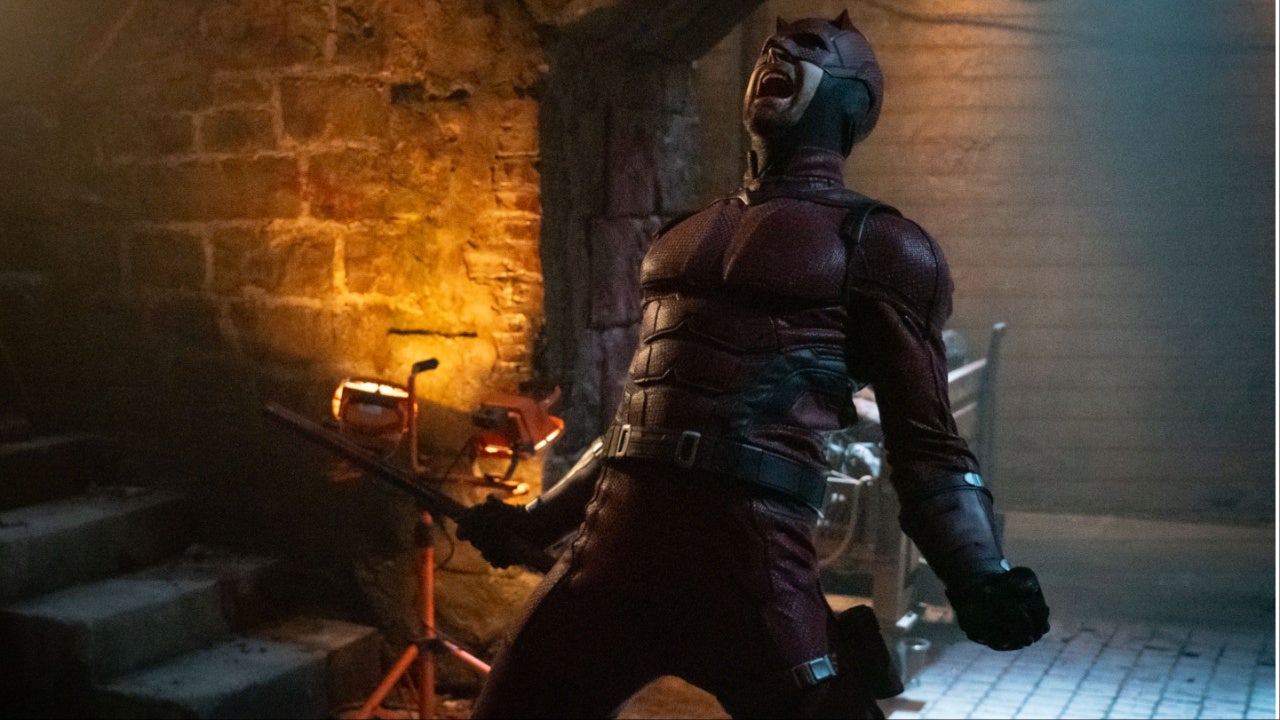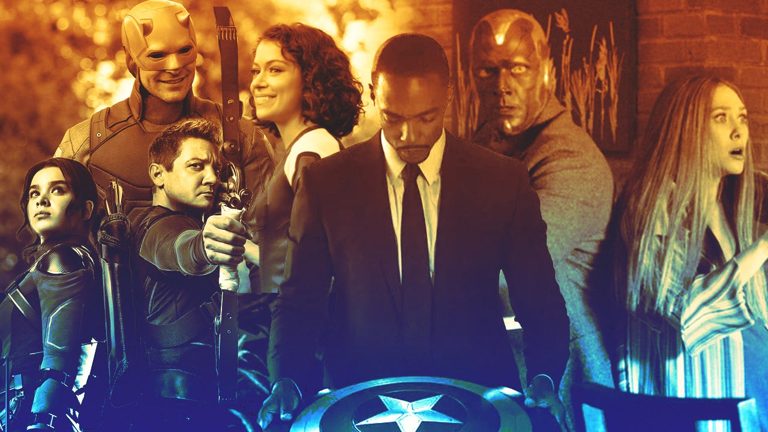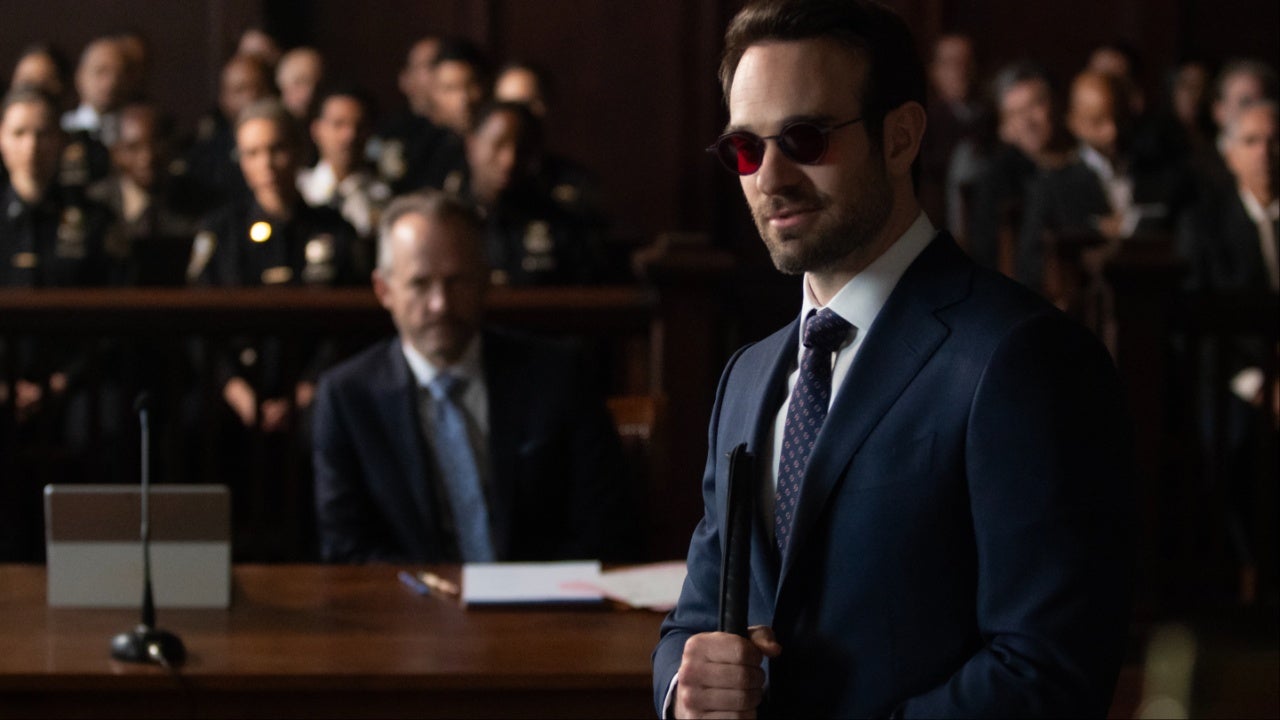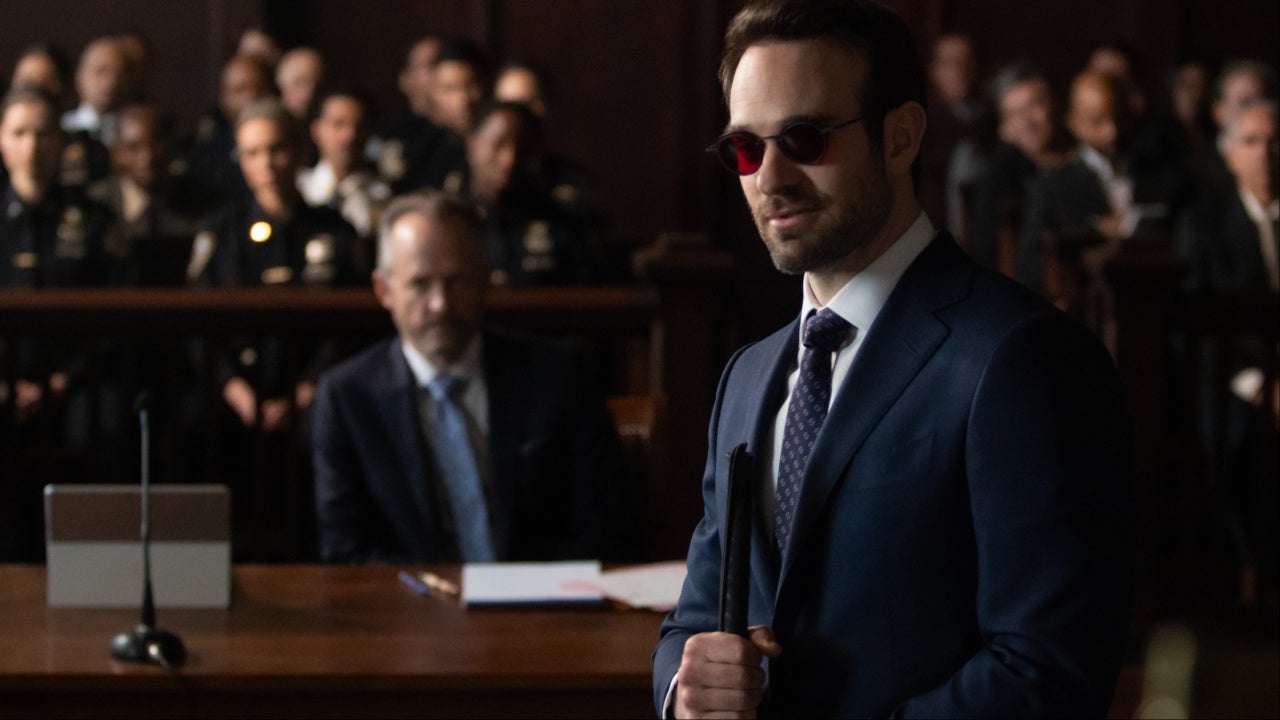The gritty streets of Hell’s Kitchen have always been a battleground. But in “Daredevil: Born Again,” the fight for justice took a brutal and unexpected turn. Season 1 concluded with a shocking twist, leaving fans reeling and hungry for more. Now, the question on everyone’s mind is: what’s next for Matt Murdock and the denizens of this beleaguered borough? Get ready to peel back the layers of the season finale and explore how “Daredevil: Born Again” sets the stage for a thrilling Season 2 and a Punisher special that promises to push the boundaries of darkness even further. Buckle up, because the streets of Hell’s Kitchen are about to get a whole lot more dangerous.
Daredevil’s Moral Maze: Exploring the Complexities of Born Again’s Season 1 Finale

The concluding episodes of Daredevil: Born Again delve into a multifaceted moral labyrinth, testing Matt Murdock’s principles and pushing him to confront the consequences of his choices. Instachronicles breaks down the complexities of these episodes, analyzing the show’s nuanced exploration of vigilante justice and the blurred lines between right and wrong.

Inside the Bank Heist: A Study in Restraint and Resourcefulness
Episode five of Season 1 throws Matt Murdock into a tense situation – an armed bank robbery. Though he doesn’t don the Daredevil suit, the episode showcases his remarkable abilities as a lawyer and a hero. The confined setting of the bank amplifies these skills, forcing Murdock to rely on his wit and agility to protect the hostages and thwart the robbers. This episode masterfully blends action with humor, creating a captivating and suspenseful experience.
Instachronicles notes the strategic simplicity of the episode’s premise, highlighting how the limited setting allows for a more focused exploration of Murdock’s resourceful nature. The episode cleverly utilizes the bank’s infrastructure, transforming mundane objects into tools for both defense and offense. Murdock’s decision to remain in civilian attire adds another layer of complexity, emphasizing his internal struggle between his legal identity and his vigilante persona.
The episode’s witty undercurrent adds a layer of levity to the tense situation, highlighting the contrast between Murdock’s sharp intellect and the absurdity of the criminal’s actions. This clever juxtaposition serves to further endear Murdock to the audience, showcasing his humanity even in the face of danger. The episode’s subtle humor is not gratuitous but rather serves to heighten the dramatic tension and to further emphasize Murdock’s multifaceted nature.
The appearance of Yusuf Khan, the father of Ms. Marvel, adds a unique layer to the episode. While seemingly a minor detail, Khan’s presence subtly connects Daredevil to the larger Marvel Cinematic Universe, hinting at future crossovers and shared narratives. This intentional weaving of established characters and storylines demonstrates the interconnectedness of the MCU, enriching the viewing experience for fans.

From Subtle Justice to Violent Confrontation: The Weight of Choices
The series finale underscores the weight of choices and the escalating violence that often accompanies vigilantism. While Murdock initially strives for a more restrained approach, he is ultimately forced to confront the brutality of his adversaries. This shift in tone reflects the darkening landscape of Hell’s Kitchen and the growing danger that threatens both Murdock and those he seeks to protect.
Epiosde six introduces Muse, an artist serial killer who becomes a formidable adversary for both Murdock and Wilson Fisk. Muse’s crimes force Fisk to confront his own methods, leading him to embrace a more ruthless and authoritarian approach to maintaining order. This escalation in Fisk’s tactics highlights the cyclical nature of violence and the seductive allure of power.
Murdock’s response to Muse’s crimes reveals his internal conflict. He grapples with the limitations of his legal methods and the temptation to resort to more extreme measures. The brutality of Muse’s attacks pushes Murdock to the brink, forcing him to question his own principles and the consequences of his actions.
The shocking assassination of Hector Ayala at the end of episode three underscores the cost of vigilantism and the vulnerability of those who fight for justice. Ayala’s death serves as a stark reminder of the dangers that lurk in the shadows of Hell’s Kitchen and the constant threat of violence that pervades Murdock’s world.

The Punisher’s Shadow: Exploring the episode’s brutal climax and its ramifications for both Daredevil and the city.
The second half of Daredevil: Born Again’s fifth episode is a masterclass in building tension, as the bank heist reaches its violent conclusion. The Punisher’s logo is emblazoned on the killer’s mask, leaving a haunting impression on Matt Murdock. This event sets off a chain reaction, forcing both Daredevil and the city to confront the harsh realities of vigilantism. The Punisher’s presence in the show is a nod to the complex themes of violence and morality that are at the heart of the Daredevil series.
Murdock’s encounter with the Punisher’s ally is a testament to his willingness to put himself in harm’s way to protect others. This bravery is a hallmark of his character, and it’s a quality that makes him an effective hero. However, it also raises questions about the morality of his actions and whether they are truly justified.
The Punisher’s presence in the show also serves as a commentary on the cyclical nature of violence. The Punisher’s actions are a response to the violence he has experienced in his past, but this only perpetuates a cycle of violence that can never truly be broken. This theme is echoed in the show’s exploration of the consequences of vigilantism and the impact it has on both the individual and society as a whole.
The aftermath of the bank heist is a somber and reflective moment in the episode, as Murdock grapples with the consequences of his actions. This is a pivotal moment in the show, as it sets the stage for the events that will unfold in the subsequent episodes. The Punisher’s shadow looms large over the city, serving as a reminder of the dangers of vigilantism and the need for accountability.
Fisk’s Descent: Analyzing the Mayor’s manipulative tactics and how they reflect his character arc.
Mayor Fisk’s descent into darkness is a masterful portrayal of a complex character’s inner workings. His actions are a reflection of his own morality and the lengths he will go to in order to achieve his goals. The show expertly crafts a narrative that showcases Fisk’s cunning and manipulative nature, making him a formidable adversary for both Daredevil and the law.
Fisk’s use of the Punisher as a tool to further his own agenda is a testament to his ruthless ambition. He sees the Punisher as a means to an end, a way to consolidate his power and control over the city. This is a chilling portrayal of a character who will stop at nothing to achieve his goals, no matter the cost to others.
The show also explores Fisk’s personal life, delving into his relationship with Vanessa and the toll his actions are taking on their relationship. This adds a layer of depth to Fisk’s character, making him a more nuanced and complex individual. The show’s portrayal of Fisk’s inner turmoil is a testament to the character’s complexity and the nuanced performance of Vincent D’Onofrio.
Fisk’s character arc is a fascinating one, as he navigates the moral gray areas of his actions. He is a character who exists outside of traditional hero-villain dichotomies, making him a compelling and complex figure. The show’s exploration of Fisk’s character is a highlight of the series, offering a nuanced and thought-provoking portrayal of a complex individual.
The Death of White Tiger: Dissecting the shocking assassination and its impact on both the narrative and Murdock’s moral compass.
The assassination of White Tiger is a shocking moment in the episode, one that has a profound impact on both the narrative and Murdock’s character. The show expertly crafts a scene that is both intense and emotional, making the viewer feel the weight of White Tiger’s loss.
The death of White Tiger serves as a reminder of the dangers of vigilantism and the consequences of taking a stand against the system. It’s a poignant moment in the show, as it highlights the risks that heroes like Murdock and White Tiger take in order to fight for what they believe in.
Murdock’s reaction to White Tiger’s death is a testament to his emotional depth and the impact that the event has on him. He is a character who is deeply affected by the loss of his friend and ally, and this serves as a reminder of his humanity and the complexities of his character.
The death of White Tiger also has significant implications for the narrative, setting in motion a chain of events that will have far-reaching consequences for both Murdock and the city. It’s a pivotal moment in the show, one that serves as a catalyst for the events that will unfold in the subsequent episodes.
Murdock’s Crossroads: Lawyer, Hero, or Something In Between?
A Question of Tactics: Critiquing Murdock’s courtroom strategy and its consequences for Ayala’s fate.
Murdock’s courtroom strategy is a pivotal moment in the episode, one that has significant consequences for Ayala’s fate. The show expertly crafts a scene that is both intense and emotional, making the viewer feel the weight of Murdock’s decision.
Murdock’s decision to reveal Ayala’s identity as White Tiger is a complex one, and it raises questions about the morality of his actions. Is it right to sacrifice one person’s secret in order to save another? The show doesn’t provide a clear answer, leaving the viewer to ponder the implications of Murdock’s decision.
The consequences of Murdock’s decision are far-reaching, setting in motion a chain of events that will have significant impacts on both Murdock and the city. It’s a pivotal moment in the show, one that serves as a catalyst for the events that will unfold in the subsequent episodes.
The Burden of Witnessing: Analyzing how the events of the episode push Murdock towards a potential return as Daredevil.
The events of the episode push Murdock towards a potential return as Daredevil, as he grapples with the consequences of his actions. The show expertly crafts a narrative that showcases Murdock’s emotional depth and the complexities of his character.
Murdock’s decision to reveal Ayala’s identity as White Tiger is a testament to his willingness to take risks and push the boundaries of what is acceptable. This is a hallmark of his character, and it’s a quality that makes him an effective hero.
The show’s portrayal of Murdock’s inner turmoil is a testament to the character’s complexity and the nuanced performance of Charlie Cox. The show’s exploration of Murdock’s character is a highlight of the series, offering a nuanced and thought-provoking portrayal of a complex individual.
A Legacy of Loss: Reflecting on the emotional weight of Ayala’s death and its potential to shape Murdock’s future actions.
Ayala’s death is a poignant moment in the episode, one that has a profound impact on both the narrative and Murdock’s character. The show expertly crafts a scene that is both intense and emotional, making the viewer feel the weight of Ayala’s loss.
Ayala’s death serves as a reminder of the dangers of vigilantism and the consequences of taking a stand against the system. It’s a poignant moment in the show, as it highlights the risks that heroes like Murdock and Ayala take in order to fight for what they believe in.
The show’s portrayal of Murdock’s reaction to Ayala’s death is a testament to his emotional depth and the impact that the event has on him. He is a character who is deeply affected by the loss of his friend and ally, and this serves as a reminder of his humanity and the complexities of his character.
Conclusion
As we dissect the finale of Daredevil: Born Again’s inaugural season, it’s clear that the show’s masterful storytelling has set the stage for a thrilling second season and a highly anticipated Punisher special. The article has meticulously broken down the key plot twists, character arcs, and narrative threads that will continue to unravel in the forthcoming seasons. From Matt Murdock’s moral dilemmas to the emergence of new villains and the lingering presence of Frank Castle, every element has been carefully crafted to keep viewers on the edge of their seats.
The significance of Born Again’s first season lies in its bold reimagining of the Daredevil mythos, offering a fresh take on beloved characters while maintaining the essence of the original narrative. By doing so, the show has not only revitalized the franchise but also provided a platform for exploring complex themes, such as morality, redemption, and the blurred lines between heroism and vigilantism. As we look ahead, it’s evident that the series will continue to push boundaries, challenging its characters and audiences alike to confront the darker aspects of human nature.
As the dust settles on season one, one thing is certain – the future of Hell’s Kitchen hangs in the balance. With the stage set for a catastrophic showdown, one question lingers: what will be the true cost of Matt Murdock’s crusade against evil? As the DEVIL’s legend grows, so too do the stakes, and the fate of the city hangs precariously in the balance. One thing is for certain – the battle for Hell’s Kitchen has only just begun, and the outcome will be nothing short of apocalyptic.